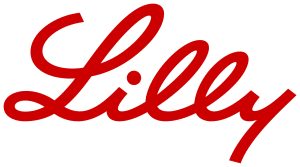
Click on ‘Explanation about the score’ sign next to each entry to expand and learn more.
The company should publicly commit to human rights in relation to product development and marketing, by adopting an official human rights policy statement recognising the right to the highest attainable standard of health. The company should endeavour to integrate human rights into its strategies, policies, programmes, projects, and activities.
The company should also have a publicly available global access plan for their Covid-19 product, based on human rights standards, with measurable targets and lines of accountability.
Eli Lilly has made a general commitment to equitable access to medicines in low- and middle-income countries.
It has also published ‘Principles of Covid-19 antibody therapy pricing and access’, and an Infographic on access and affordability principles for neutralizing antibodies.

Eli Lilly has not published a commitment to comply with human rights.

The company should constructively engage with international initiatives for the equitable distribution of vaccines and therapeutics, such as the Covid-19 Technology Access Pool (C-TAP) or the Medicines Patent Pool (MPP), and the ACT Accelerator (COVAX). The company should also publicly commit to not enforcing the exclusive rights of Covid-19 related patents, and enter into non-exclusive, transparent licensing agreements for its Covid-19 products with other companies.
Eli Lilly has not committed to C-TAP or the MPP.

Eli Lilly has not made a commitment not to enforce patents: ‘Eli Lilly [has] filed and obtained patents widely, including in countries hit hard by the pandemic, such as Brazil, Russia, South Africa and Indonesia. Where patents are granted, the monopoly does not expire until 2029 and could even persist longer because of patent-term extensions’.
Eli Lilly states on its website: Olumiant is patent-protected in the USA until 2030; in Europe until 2029 and Japan until 2033.

Eli Lilly has not signed an agreement with the ACT Accelerator.

Eli Lilly has signed deals with Indian generic manufacturers for royalty-free voluntary licensing agreements (Cipla, Natco pharma, Doctor Reddy’s, Sun Pharma, Lupin, Torrent and BDR).
Note: the geographical scope of Lilly’s licensing policy is limited to India, which greatly restricts its impact. While the voluntary nature of Lilly’s licenses is good, broader licensing territories have a greater impact on global access.

The company should engage in efforts to further equitable distribution of Covid-19 vaccines/therapeutics, by equitably distributing its supplies globally, devising fair pricing strategies, and making the active ingredient for its product available to other manufacturers. The company should also engage in full technology transfer to other manufacturers, including the necessary transfer of skills, legal components, knowledge and intellectual property. Where applicable, the company should agree to waive rights in regulatory test data, and refrain from enforcing TRIPS+ measures.
There is no evidence that Eli Lilly makes the active ingredient for Baricitinib available to other manufacturers (there is only one supplier of the generic ingredient Baricitinib)

Eli Lilly has entered into non-exclusive licensing agreements with Indian manufacturers but there is no evidence of full technology transfer.

Baricitinib has been approved for other indications, and generic versions already available in India and Bangladesh for nearly 400 times less than what Eli Lilly charges (2326 US dollars per course of treatment vs 5.50USD in India)

[Only applies to vaccines]
No information has been found on this criterion.

No information has been found on this criterion.

The company should be as transparent as possible, by publishing its research and development costs, profit margin, average costs of production, and production capacity for its Covid-19 product. It should also disclose the amount of public subsidies received during product development and/or testing. Licensing agreements should also be made publicly available and clinical trials should be registered in public repositories.
Eli Lilly publishes its overall research and development costs for the year 2021, but these are not specific to Olumiant

Eli Lilly’s Q3 2021 financial report declares 1.425 billion US dollars in revenue from Covid-19 therapies, and that Olumiant generated 406.9 million US dollars (compared to 162 in 2020)
“For the full year of 2021, Olumiant generated worldwide revenue of 1.115 billion USD, an increase of 75% compared with the full year of 2020. US revenue was 324.1million USD, an increase of 260.3 million USD.”

Eli Lilly does not publish the costs of producing Baricitinib specifically.

Eli Lilly has not published its production capacity for Baricitinib.

Eli Lilly states: “The company has self-funded the research, development and manufacturing costs for its potential COVID-19 antibody treatments and has not accepted money from governments or accepted other public financial support in connection with its efforts to produce potential COVID-19 antibody treatments. The Company has already disclosed this fact publicly, including in its press release (the “Principles Press Release”) announcing the Company’s “Principles of COVID-19 Antibody Therapy Pricing and Access” (the “Principles”) and on the Company’s website dedicated to COVID-19 disclosure.
This disclosure is not specific to Baricitinib but applies to antibody treatments in general.

Eli Lilly has not published the texts of any licensing agreements.

Eli Lilly registers its clinical trials on clinicaltrials.gov

Never miss an update from the Pharmaceutical Accountability Foundation!